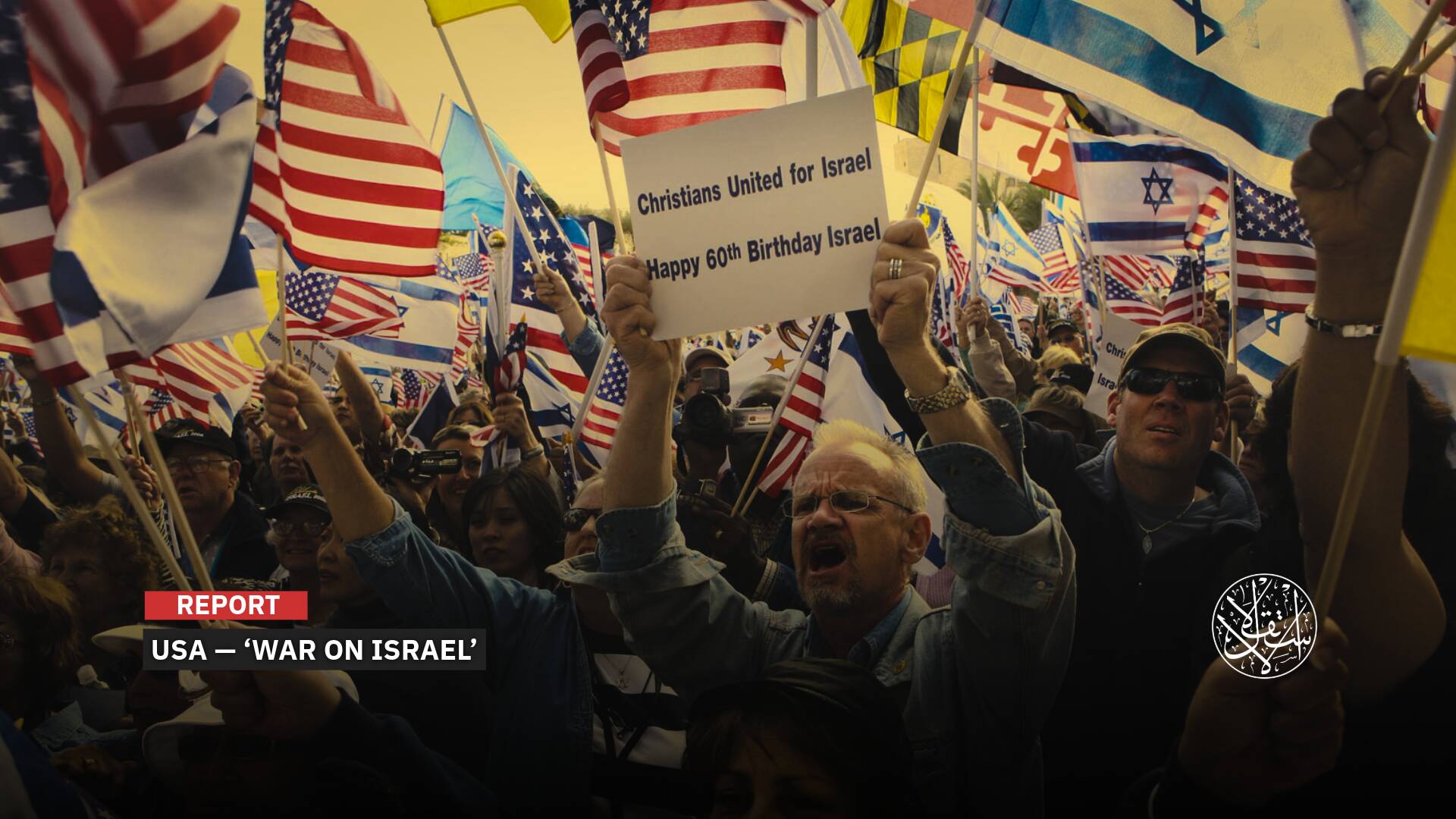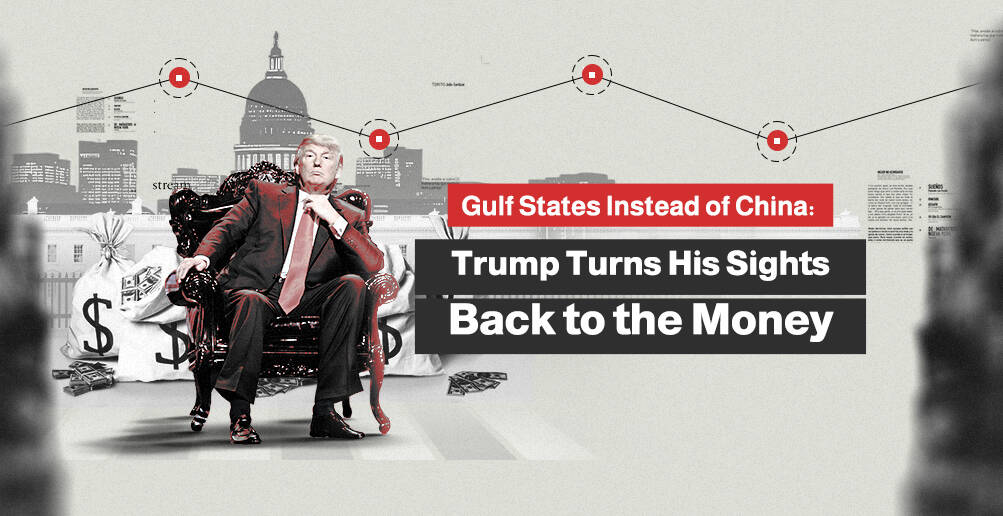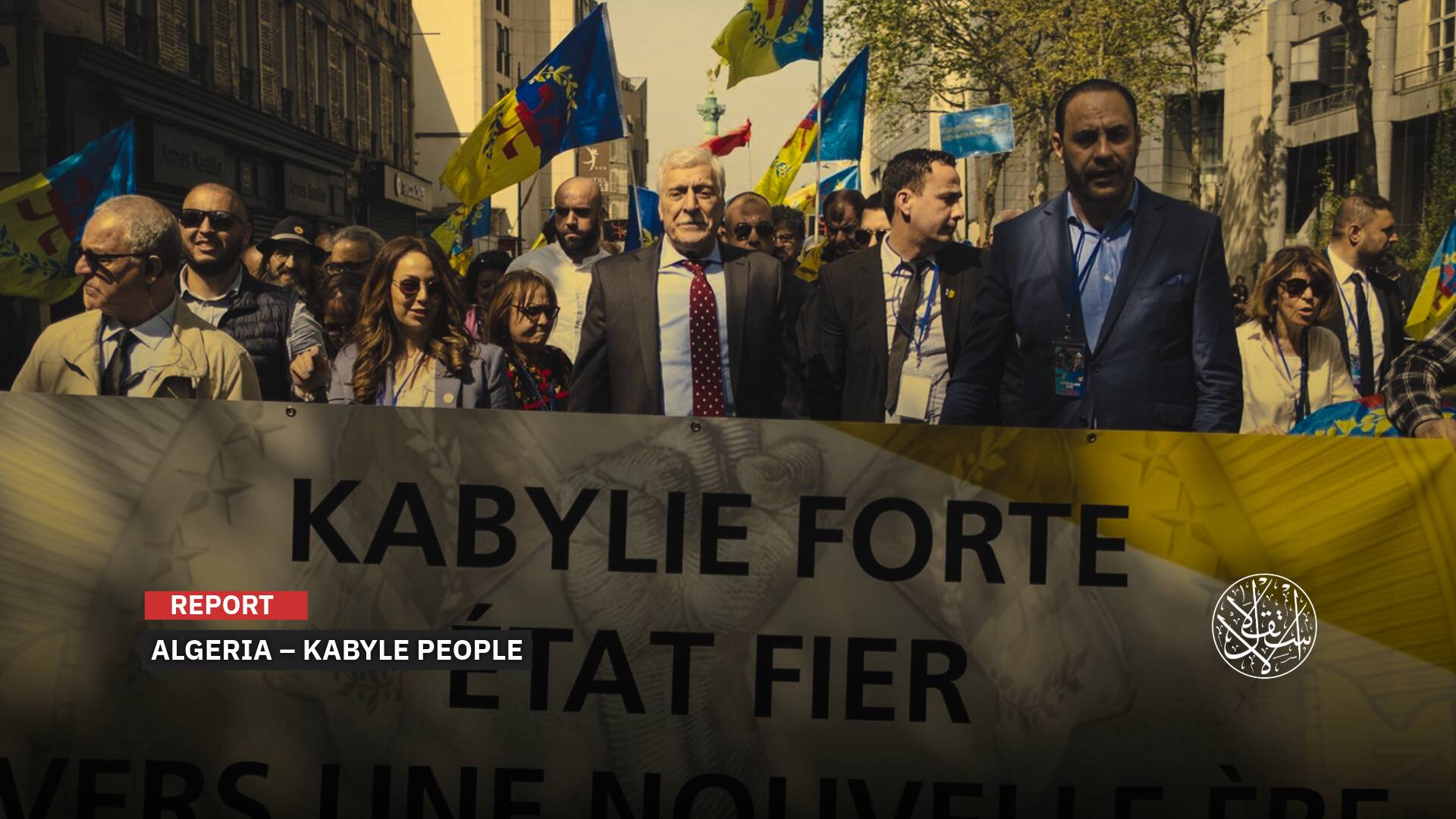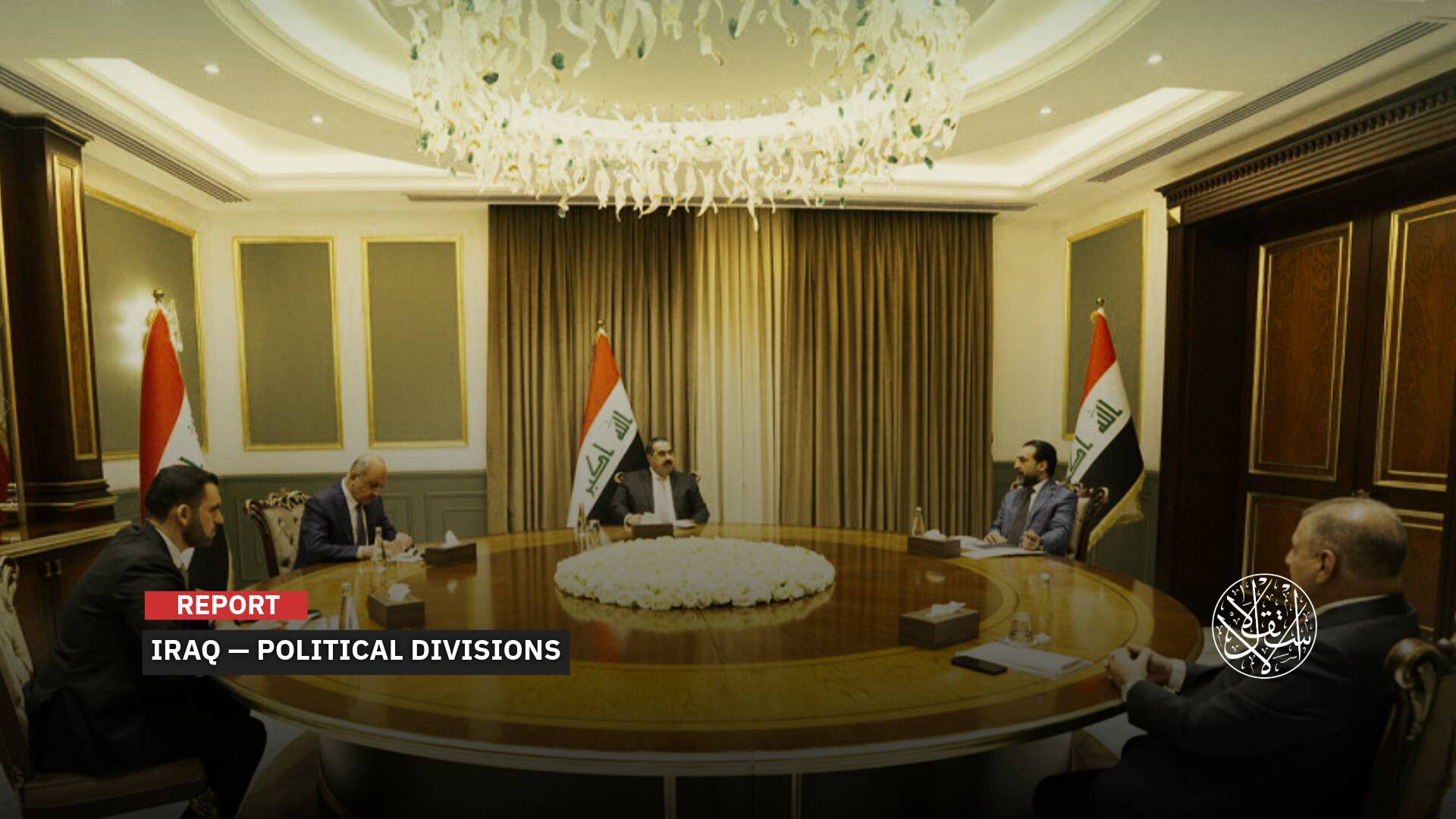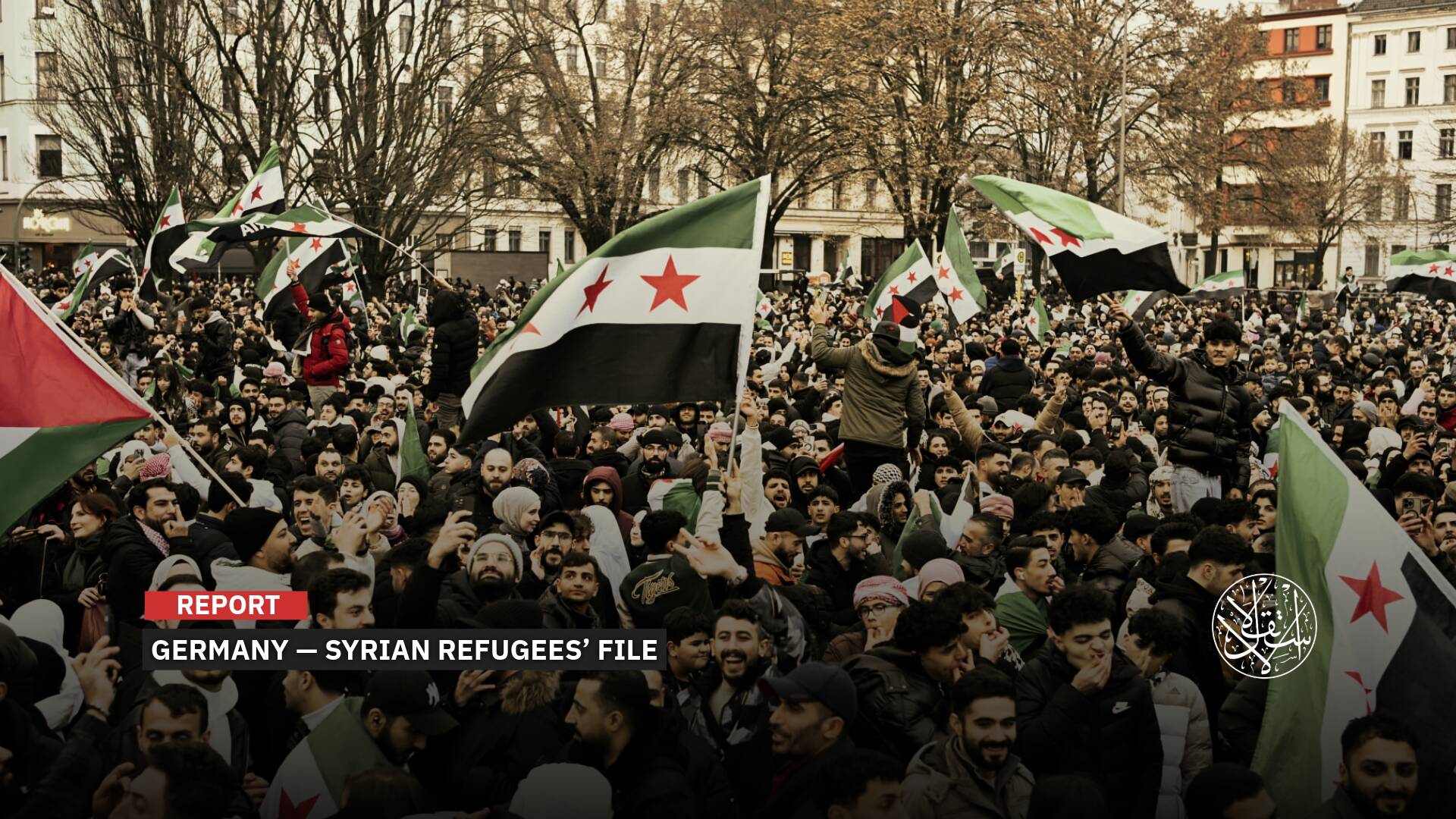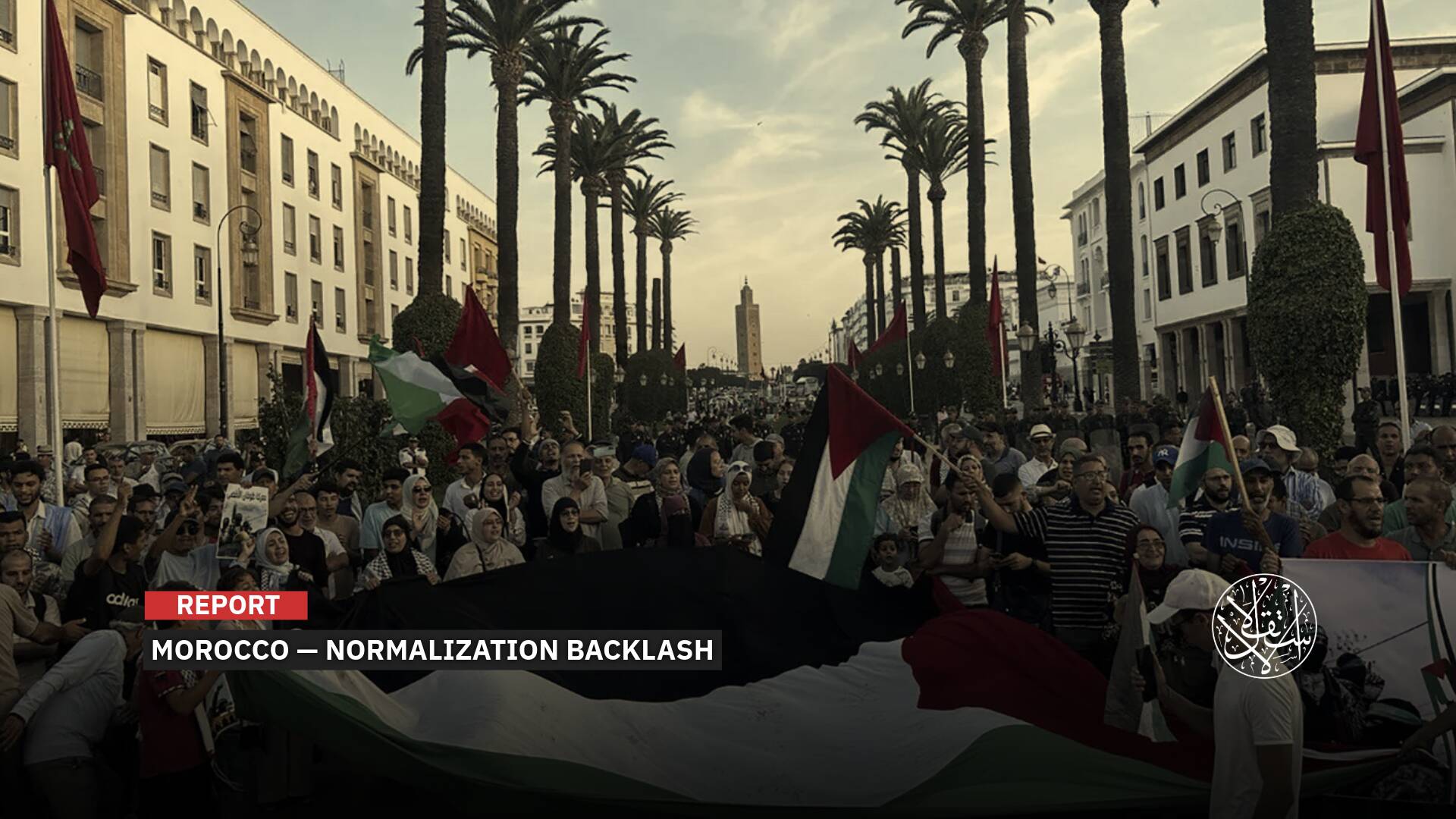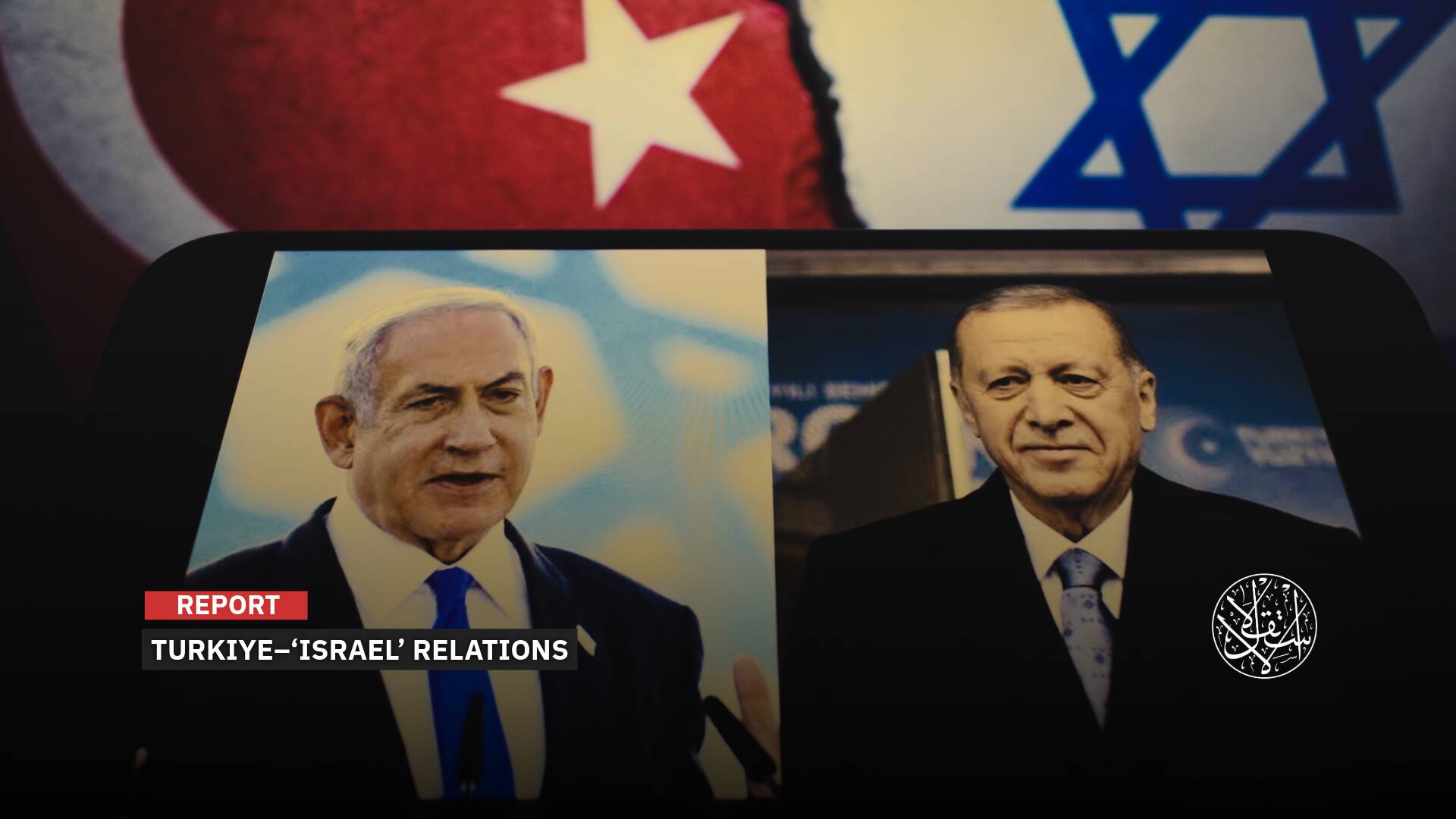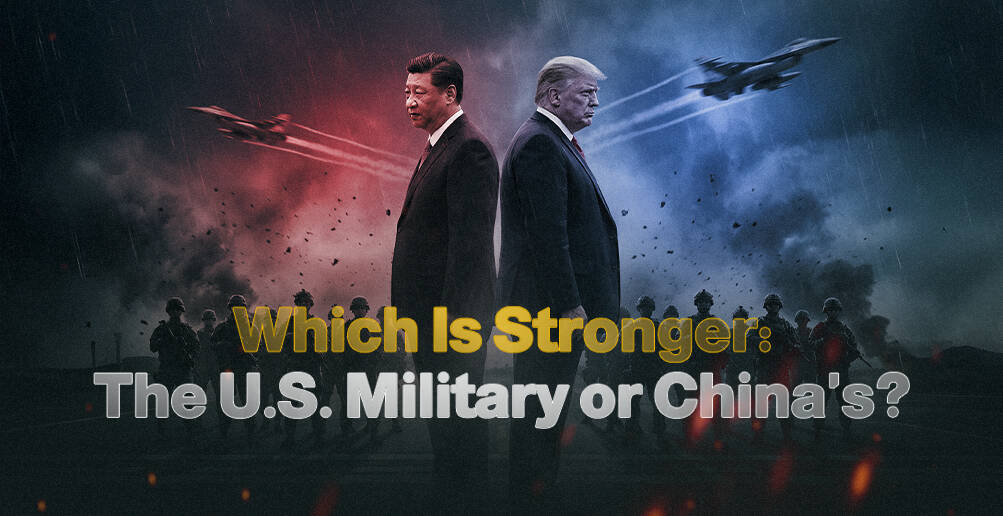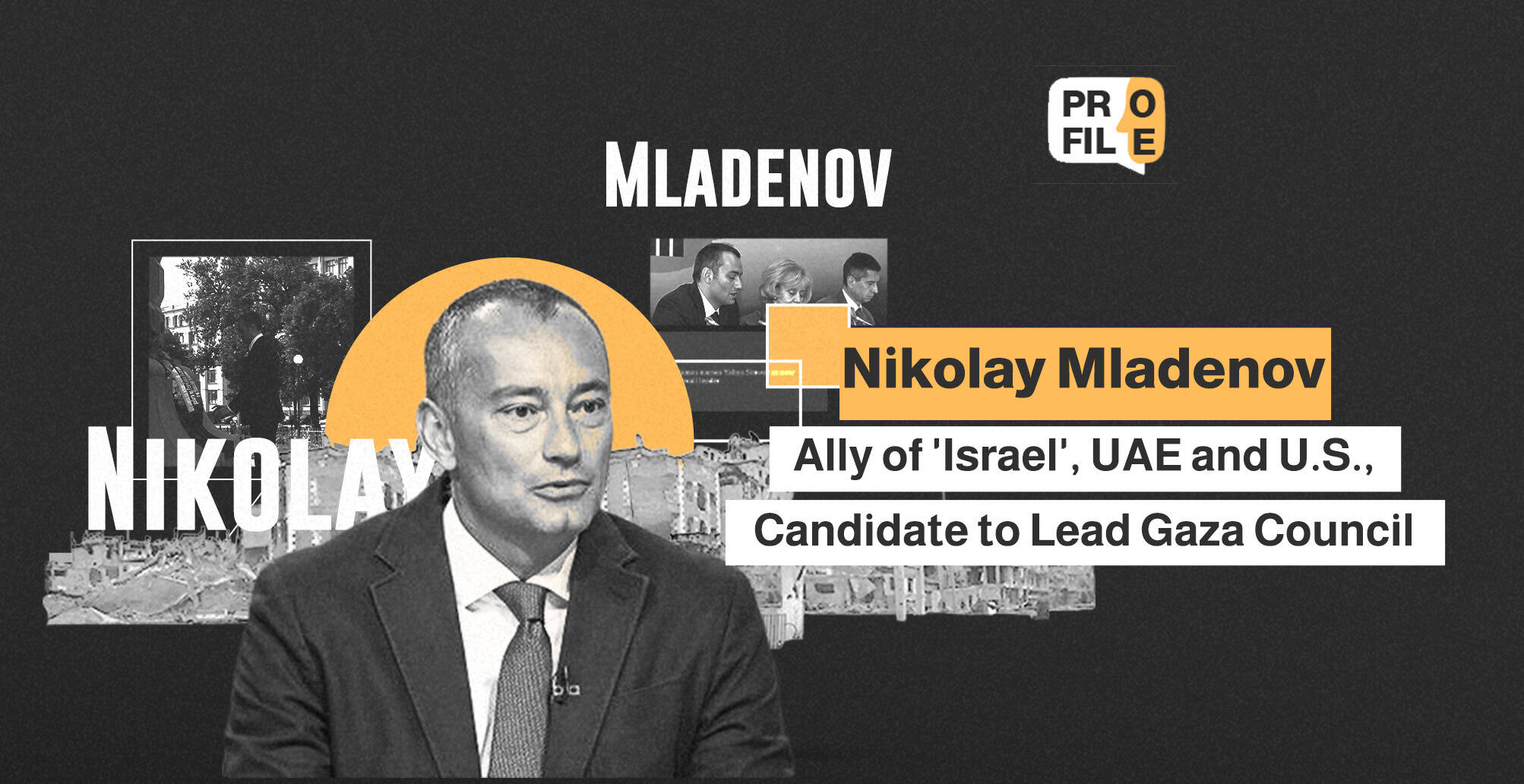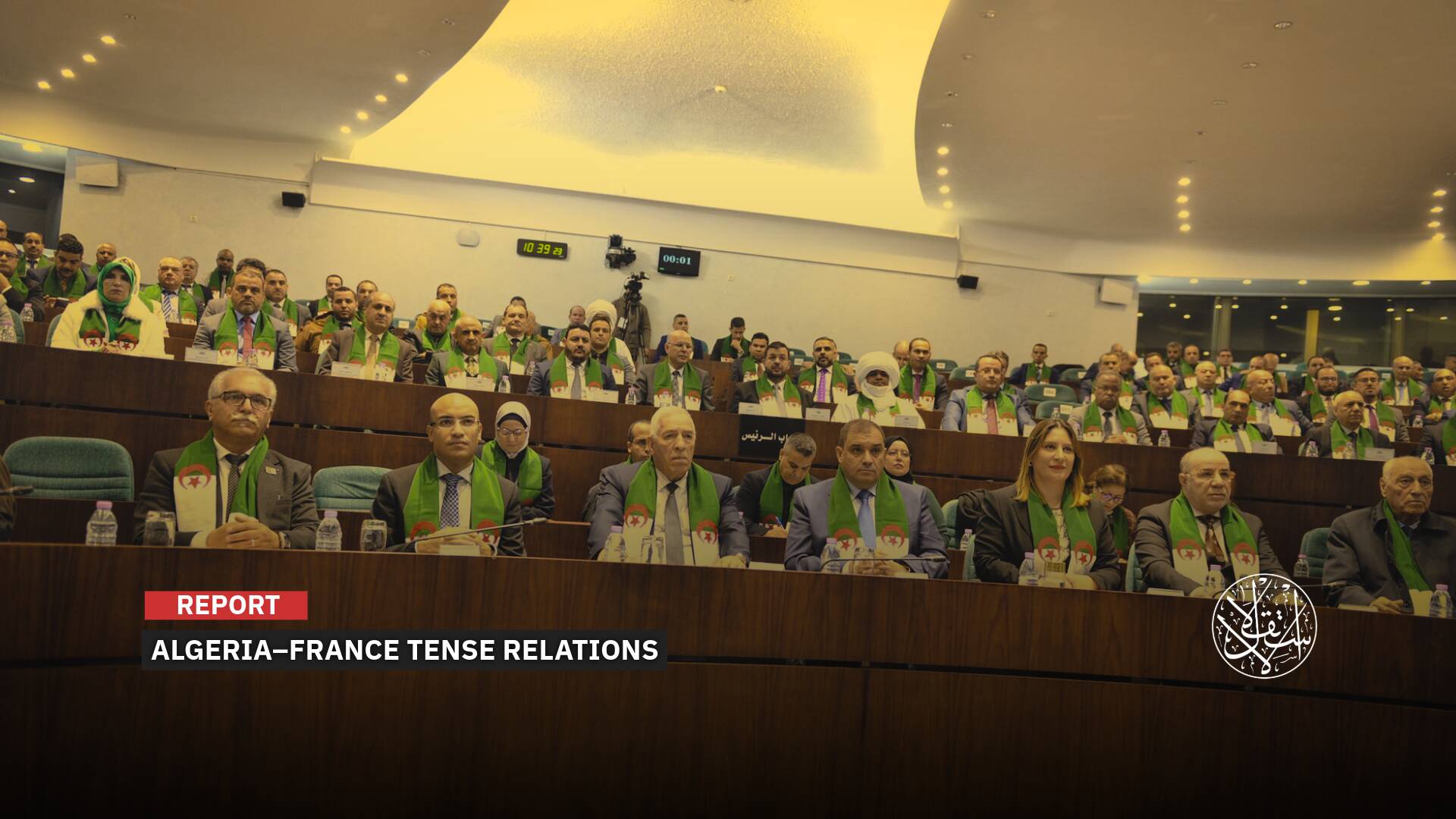Espionage and Treason: How Have Foreign Fighters Become a Headache for Ukraine?

Despite the intensification of the Russian invasion, Ukraine has begun collaborating with Interpol and Western intelligence agencies to conduct security screenings of foreign fighters who have volunteered to fight alongside Ukrainians since February 24, 2022.
At the start of the invasion, Ukrainian President Volodymyr Zelensky announced the formation of the International Legion of Territorial Defense of Ukraine, welcoming volunteers from around the world to fight alongside Ukrainians against Russia.
Following the formation of this legion, Ukrainian authorities reported receiving approximately 20,000 volunteer applications to fight against Russia. Shortly thereafter, Zelensky announced that 16,000 foreigners had volunteered for the International Legion of Territorial Defense of Ukraine.
Russia considers these individuals as mercenaries in the service of Kyiv, while the Ukrainian army denies their mercenary status, stating that they have official contracts with them.
Security Screening
Although foreign volunteers have contributed to the Ukrainian battles and many of them have lost their lives, as they were on the front lines, especially with former officers and soldiers who served in their respective countries’ armies, it seems that the time for “vetting” these individuals has come.
Currently, Kyiv seeks to screen foreign fighters in its ranks. To this end, representatives from the Ukrainian Security Service met with Interpol counterparts on May 10, 2023, to discuss the possibility of working together to identify individuals who traveled to Ukraine to evade justice in other countries or to carry out espionage missions.
Kyiv has also begun exploring the option of holding similar dialogues with relevant authorities in the United States, the United Kingdom, France, and Germany.
According to Intelligence Online, ongoing consultations are taking place between the Ukrainian Security Service, Interpol, and various Western intelligence agencies, which could lead to the adoption of new unified measures for exchanging data on individuals wanted in their home countries.
So far, Ukrainian security agencies have disclosed information about some of these individuals on a case-by-case basis without any specific coordination between them, as reported by the magazine on May 29.
Furthermore, there is currently no established communication channel with the authorities in the home countries of the foreign volunteers.
These volunteers come from prominent countries such as the United States, Denmark, India, “Israel,” Poland, Latvia, Croatia, the United Kingdom, the Netherlands, and Canada.
In the second tier, there are citizens from Central and Eastern European countries whose motivations for fighting alongside Ukraine sometimes vary.
Among those who arrived to fight for Ukraine are dozens of former soldiers from the British Army’s elite Parachute Regiment.
Some volunteers brought bulletproof vests filled with medical supplies from their countries and offered to work as civilian medics.
Certain Western fighters in Ukraine receive regular salaries, reportedly comparable to those of Ukrainian soldiers.
International military fighters accepted into the International Legion of Territorial Defense of Ukraine sign contracts guaranteeing them a monthly salary of $3,000.
Espionage Missions
However, espionage and criminal backgrounds often go hand in hand with some of these volunteers who came to Ukraine.
This is evident in a recent incident reported by Intelligence Online about Colombian citizens being sent to Ukraine by major drug traffickers before being recruited by Russian intelligence agents in the UAE.
The case of John McIntyre, the veteran American warrior who fought in Ukraine for several months before defecting to join Russian ranks in February 2023, caused shockwaves in the security community in Kyiv.
It was revealed that McIntyre was wanted by U.S. authorities for sending death threats to an elected official.
Local leaders were unaware of this information until another U.S. officer, who was present on the ground, uncovered the case with the help of his connections in Washington. Unfortunately, by the time McIntyre’s actions were brought to attention, he had already fled or defected.
John surrendered himself to Russian forces and appeared on television in Moscow, claiming that it was his plan all along. He stated that he traveled to Moscow via Istanbul, and alleged that he did so to relay valuable information he gathered as a “spy” in Ukraine.
In the face of the open war in Ukraine, team leaders and factions primarily learn to conduct rapid screening operations during their work. They have the final say on whether or not a potential recruit will be employed.
Considering the growing workload, field personnel are highly supportive of the idea of formalizing the screening process and seeking help from international partners.
This would help manage the increased demands more effectively. These ambitions are currently being pursued at the highest level, as units spend significant resources to equip and train recruits, while a certain number of them end up deserting, defecting, or being expelled. McIntyre is just one example that recently garnered attention.
Return to Homeland
In recent months, many of these ambitious soldiers have returned to their homelands without making significant contributions to the war effort in Ukraine.
However, it seems that Kyiv is holding onto those with military skills to continue fighting and assist in the war effort as trainers, translators, and frontline fighters.
According to Newsweek, Jack Hoekstra, a former Marine and a dropout from the Detroit Police Academy who joined the fight for Ukraine, returned to Michigan in August 2022 after volunteering as a military trainer in Ukraine.
Interestingly, when Kyiv confirms the deaths of some volunteers, it is announced in their home countries.
French radio station “RTL” announced the death of a 20-year-old French fighter on June 25, 2022, in the Kharkiv region, succumbing to his injuries. This fighter joined the International Defense Corps at the beginning of March 2022, marking the second officially confirmed death of a French fighter in Ukraine.
According to the French radio station, there are currently around fifty French fighters actively fighting in Ukraine.
In late April 2022, the United Kingdom announced the death of a British national and the disappearance of another in Ukraine. British media reported that the deceased citizen was a former soldier named Scott Sibley.
The media also reported that the British individuals were volunteering and fighting against Russian forces.

In this context, the volunteer Polak, whom AFP met on June 26, 2022, and whose nationality was not disclosed to protect his identity, explains the situation of his Western comrades in arms who serve alongside him in the International Legion of Territorial Defense of Ukraine.
Polak confirms that these fighters have fought in Afghanistan or Iraq, but they are not prepared for the battles.
Polak points out that the legion is diverse, including Canadians, Georgians, and Croats who have not been trained in artillery warfare.
In a rare insider testimony, the volunteer states that there are many “cowards,” and sometimes, after the initial battles, they say they were not prepared for this, and they go back home.
On the other hand, Damien Magrou, 33, the spokesperson for the International Legion, explains that most of these recruits came from NATO member countries and were surprised by the intensity of the battles.
As a result, between ten and thirty percent of the volunteers return to civilian life shortly after entering the combat zone, according to Magrou.
Magrou continues by saying that almost all the recruits are former soldiers, one-third of them are from an Anglo-Saxon country, and English is the language of communication.
He added that Americans fight for freedom and Western values, while Poles say that defending Ukraine is also defending their own country.
Although they all signed contracts with the Ukrainian army, they remain free to leave at any time.
Fear of Trial
Fear of prosecution varies for foreign volunteers depending on their home country. According to Magrou, some of them could face criminal prosecution in countries like Italy or South Korea, for example.
However, a country like Denmark does not see any “legal obstacle” to Danish volunteers participating in the fighting. According to the Ukrainian Embassy in Copenhagen, around 100 Danes traveled to Ukraine to join the fight against Russian forces in mid-March 2022.
Nevertheless, those who travel to Ukraine for combat may face prosecution upon their return to their home countries.
Prime Minister Scott Morrison of Australia urged his country’s citizens not to join military fighting in Ukraine, stating in March 2022 to journalists that there are “doubts” about the legal status of foreign civilian fighters.
Germany, on the other hand, stated that they will not pursue volunteers who join the fight, and the leaders of Denmark and Latvia said they would allow their citizens to volunteer. Canadian Defense Minister Anita Anand considered Canadians volunteering a “personal decision.”
According to the information on the Foreign Office website, U.S. citizens are not prohibited from serving in another country’s army and can work as officers or fight against a country at peace with the United States.
The Foreign Enlistment Act prohibits British citizens from joining foreign armies that are fighting countries at peace with Britain, but it has not been enforced in recent conflicts.
According to a spokesperson for the Russian Ministry of Defense in early March 2022, Western fighters will not be treated as legal combatants and will face criminal prosecution or worse, according to the Russian news agency TASS.
Since the volunteers will be fighting as members of the Ukrainian army, it is unlikely that they will face charges in their home countries for their specific actions in the war, except for trial for war crimes or similar behavior, as experts suggest.
Sources
- Ukrainian and Western intelligence services consider options for collaboration on vetting foreign combatants
- John McIntyre: An American who fought with Ukraine and suddenly defected [Arabic]
- For foreign fighters, Ukraine offers purpose, camaraderie and a cause
- Explainer: Is it legal for foreigners to fight for Ukraine?




